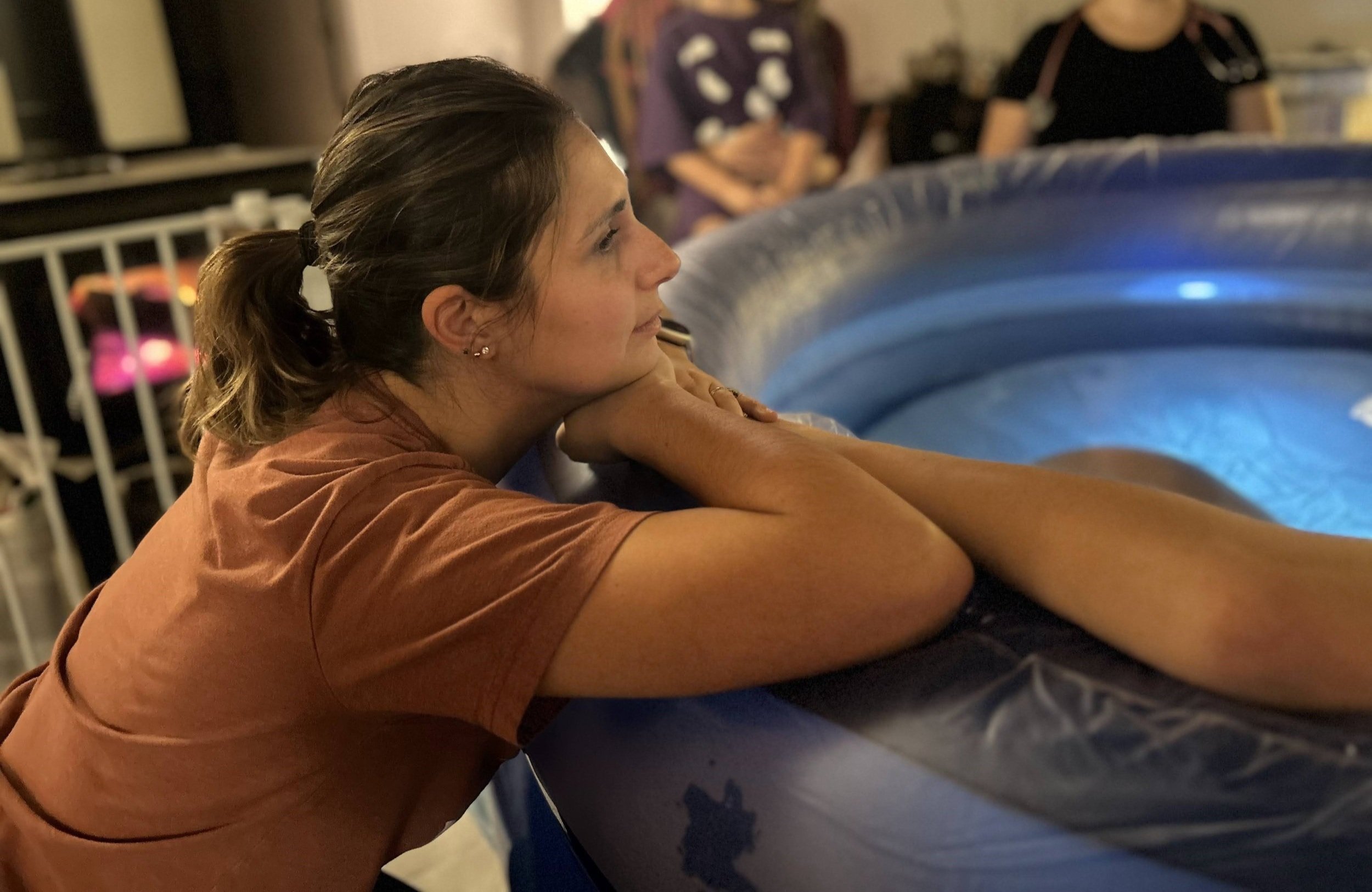
Frequently Asked Questions
-
A professional who provides emotional, physical, and informational support during childbirth. Studies show that doula-assisted births result in 25% shorter labor.
-
They offer continuous support, reducing stress and anxiety. They offer comfort measures, breathing techniques, and advocacy. Continuous support during labor decreases the likelihood of medical interventions. People with doulas are 60% less likely to request an epidural.
-
It's best to hire early in pregnancy to build a strong relationship.
-
Doulas do not perform medical tasks but focus on emotional and physical support. Midwives handle medical aspects, while doulas focus on support.
-
A hypno-doula is a birth professional trained in both traditional doula support and techniques from hypnobirthing or other relaxation-based methods. Hypno-doulas use these methods to help the birthing person stay calm, focused, and comfortable during labor.
-
While both offer emotional, physical, and informational support, a hypno-doula specializes in relaxation, breathing, and visualization techniques specific to hypnobirthing. They understand how to guide you in and out of deep relaxation states to reduce stress and manage discomfort more effectively.
-
Not necessarily, but it’s beneficial. Many hypno-doulas can help guide you through the basics or work with techniques you’re already familiar with. Taking a hypnobirthing course prior to birth, however, can enhance the hypno-doula experience and deepen the impact of the techniques.
-
No, they support all birth plans, including medicated and surgical births. Doulas adapt to any birth choice, enhancing the experience.
-
They provide education, birth planning, and emotional support. Prenatal visits with doulas can increase confidence and reduce fear.
-
Doulas enhance the partner’s experience, allowing them to be more involved by providing additional support and guidance.
-
Coverage varies, but some insurance companies do offer reimbursement. Doulas can sometimes be covered under flexible health spending accounts.
About Doula’s & Hypno-Doula’s
-
Placenta encapsulation is the process of turning the placenta into pill form after childbirth, making it easier for new mothers to consume.
-
No. I provide placenta encapsulation services for anyone interested. Additionally, I offer a discount for those who book both their birth and placenta encapsulation with me.
-
Placenta encapsulation is the process of turning the placenta into pill form after childbirth, making it easier for new mothers to consume.
-
Anecdotal reports suggest benefits like hormonal balance, increased energy, iron replenishment, and enhanced milk production.
-
Potential risks include infection, lack of quality control, and allergic reactions.
-
Typically, it is not covered by insurance, as it is considered an alternative health practice.
-
The placenta should be processed within 24 to 48 hours after birth for freshness and safety. If frozen within 2 days, it can be stored for up to 12 months, but benefits will be less potent than if fresh. Do not use if frozen longer than 12 months.
-
Yes, placenta encapsulation is possible after a C-section, but it's important to discuss this with your healthcare provider.
-
Unused capsules can often be stored in a freezer for future use, such as during times of stress or hormonal changes.



